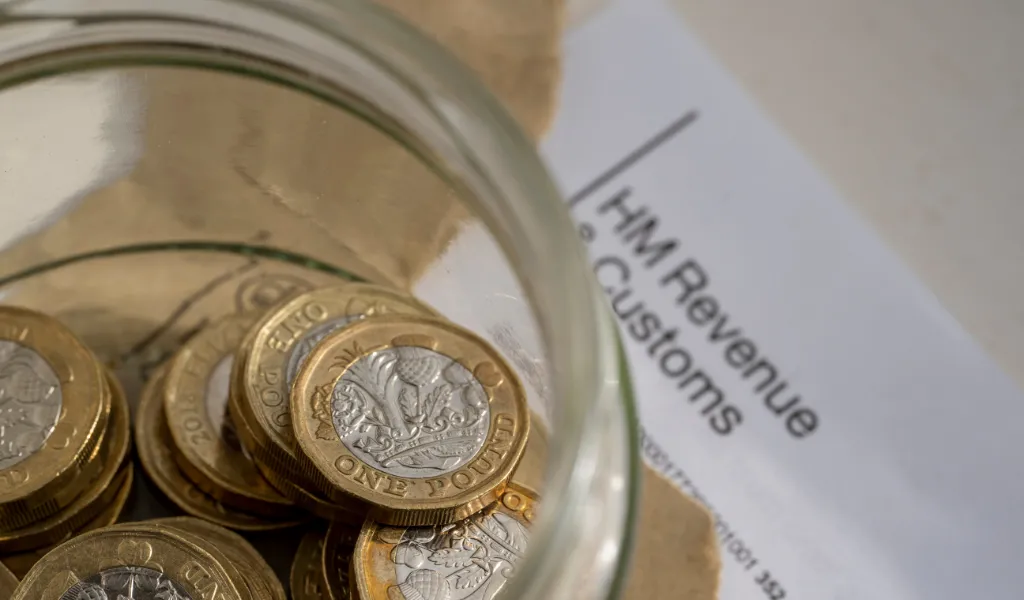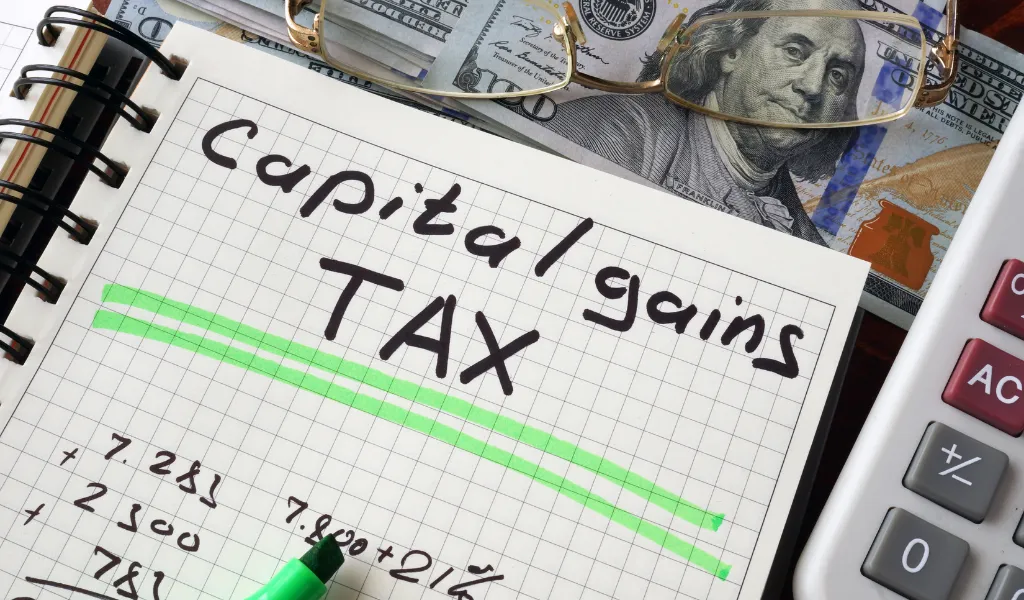You can create an additional income stream by investing in property. While it is a lucrative endeavour, it also means that you must declare the earnings you receive from renting out your property. What happens when you fail to do so? How can the HMRC know that you have undeclared rental income? This guide will explain the consequences of not declaring rental income and much more.
Please note that HMRC will eventually track you down if you do not report your rental income. If you want to avoid an investigation, then it is best to act on it yourself. Come forward with your undisclosed information. Otherwise, you will face penalties.
First, let’s talk about the importance of reporting to HMRC. Then we can move on to the various ways HMRC can uncover your undeclared rental income.

Why Reporting to HMRC is Important
In the UK, the tax authority is HM Revenue and Customs (HMRC). It is their responsibility to make sure people pay their taxes correctly.
As a property owner, you should know about HMRC. This is because they can track you down if you do not declare your rental income. They have various methods to do so. You must place deposits in authorised deposit schemes. Also, the Stamp Duty Land Tax (SDLT) you pay when buying a property can result in an investigation.
If you have an unreported income, it is best that you come forward. You should do so before HMRC catches you. This can result in an investigation. Which leads to penalties if you did not comply with the rules of declaring rental income.
When is the Self-Assessment Tax Return Due?
The previous tax year began on 6 April 2022 and on 5 April 2023, it ended.
If you are filling your tax return online, then you need to submit it by midnight 31 January 2024. This is the due date for the tax year 2022-2023.
On the other hand, the due date for submission through paper return is 31 October 2023. This is for the tax year 2022-2023.
What Does Undeclared Rental Income Mean?
Any income that you earn from renting out your property and do not report to HMRC is undeclared rental income. You must declare your rental income to guarantee that you are paying the right amount of tax. This way, you can avoid the consequences of not declaring rental income.
What is the Let Property Campaign?
If you fail to declare rental income to HMRC, then you can deal with it through the Let Property Campaign. It leads to better terms when it comes to settling your bill as compared to when HMRC investigates you.
You can get the best possible terms if you come forward. Then, you will have 90 days to calculate what you owe and pay the amount. Thus, HMRC can retrieve tax from anyone who did not disclose their rental income over a certain period. However, this is applicable to property owners only. Trusts, companies, or people who let out a shop, lock up or garage are not part of this campaign. Thus, you should know the consequences of not declaring rental income.
How Does HMRC Uncover Undeclared Rental Income?
HMRC has various methods through which they can find out about undeclared rental income. These include the following:
Estate Agents: Estate agents are in an ideal position to identify suspicious property rental activity according to HMRC. They can use them to find your undisclosed rental income.
HM Land Registry: The HM Land Registry has all the records on properties and land sold in both England and Wales. HMRC has communications with them and can learn about undeclared rental income from them.
Stamp Duty Land Tax (SDLT) Records: It applies when a person purchases property in England or Northern Ireland. In Wales and Scotland, there are equivalents of SDLT. Thus, HMRC has all the records of the properties people purchase. From this, they can figure out if they are rental properties. As that is likely the case when a person buys multiple properties.
Informants: When people report property owners to HMRC, they take it seriously. For example, tenants, neighbours, or ex-spouses may report someone.
Security Deposit: Property owners need to place the deposit into a tenancy scheme that is government approved. They must do so if the contract is that of an assured short hold tenancy. HMRC can access these schemes and the information they contain.
Electoral Register: You register for electoral register through your National Insurance number. This gives HMRC an easy way to link people to property.
If you want to avoid penalties and legal action form HMRC, then you must take the contact HMRC. You should take this step before they start their investigation. Hence, you must understand the consequences of not declaring rental income.
HMRC has a database of property owners. They gathered all this information from multiple sources. For example, using ‘Connect’, which is a computer programme. It helps detect potentially tax-free rental income.
Every day, the Let Property Campaign reaches out to more property owners. Anyone who has not declared their rental income should know that it is possible they are on the list.
Therefore, it is essential for those people to act now. This way, HMRC does not catch them through investigations into their undeclared rental incomes.

What Are the Consequences of Not Declaring Rental Income in the UK?
There are various outcomes when you fail to declare rental income to the HMRC:
1. Facing Penalty Worth up to 100% of the Tax Due
If you, as a property owner, fail to declare your rental income, you can face significant penalties. Depending on the circumstances, the penalties can range from 10% to 30%. However, if they believe that you intentionally did not declare your rental income, they can go up to 100%. Moreover, if they believe there is a tax loss, they can make an enquiry for up to 20 years.
If you wish to avoid facing these consequences, you should inform HMRC about your rental income. Also, you should pay the tax you owe within 90 days. When you fail to do so, you face penalties along with interest.
HMRC favours a quick disclosure of undeclared income. This is likely to lead to a lower penalty charge than you would otherwise face.
On the other hand, if they launch an investigation, you will face a higher penalty than if you disclose voluntarily. Thus, it is important to know the consequences of not declaring rental income.
2. Facing Prosecution and Potential Imprisonment
Indeed, you can face severe consequences if you fail to declare your rental income. Other than the hefty fines and back taxes, you can also face criminal prosecution. Furthermore, you may have to pay interest and late-payment fees. You pay this if there are any taxes you owe from previous years.
If HMRC finds you guilty of tax evasion after an audit or investigation, you can face jail time of up to seven years. Or you may end up paying a hefty find in addition to the existing penalties.
3. Losing Tax Relief
Aside from penalties and facing possible prosecution, you may end up paying taxes on profits from other sources of income. These are the ones that you could use otherwise. Suppose you face a loss from a rental property. Also, you cannot carry forward that loss to offset it against your future profits. In that case, it will cost you greatly.
Also, if you do not declare all your rental income or use the property allowance, you will face taxes on your full number of profits. Inevitably, if you do not declare your rental income correctly, then you can end up in financial loss.
4. Losing Your Personal Allowances
Truly, there are plenty of consequences of not declaring rental income to the HMRC. They can also impose back taxes on any amount that is unpaid, along with interest or penalties. The basis for which is how long you left out the undeclared income from your declaration.
If you do not declare your income in the first place, then it is likely that you cannot carry forward losses from previous years against future profits from rental properties.
Therefore, it is important to declare your rental income correctly. Otherwise, you must deal with these consequences.
5. Losing Capital Gains Tax (CGT) Exemptions
Depending on your situation, you can qualify for various Capital Gains Tax (CGT) exemption. You can lose these exemptions if you fail to declare your rental income on your tax return. Through your tax returns and records, such as bank statements, HMRC can determine any undeclared rental income. They can also review your property deed transfer and any other sources of information to check for this.
Then, if they find that you did not declare your rental income, Capital Gains Tax (CGT) and penalties can apply. It is best to declare all applicable rental income correctly on your yearly tax returns to avoid such penalties. It is important to understand the consequences of not declaring rental income.
6. Losing Entitlement to Some Tax Credits
Since deductions and losses for actual expenses are declared when filing a tax return, you may not be able to claim them. Suppose you want to use the property allowance. Then, by 31January of the second year after the end of the applicable tax year, you need to file a return. If you fail to do so, then you may face tax and penalties as per the usual procedures.
You can visit GOV. UK to better comprehend the best way to file your taxes. This way, you will not have to deal with getting caught out for declaring undeclared rental income.
You can use a flat £1,000 tax-free allowance against your rental income. It is the HMRC property income allowance. However, you cannot claim it in combination with your other rental income allowances. Therefore, you must ponder if this is the most tax-efficient relief for you to claim.
7. Losing Entitlement to Specific Benefits
Now onto the last of the consequences of not declaring rental income to HMRC. It can turn out very costly for you. You can lose out on deductions that you apply against your other sources of income. For example, pension payments and dividends. Additionally, you may end up paying taxes in upcoming years in case your rental profits are more than your losses. Besides this, it is possible that you cannot carry forward the previous year’s losses against future rental income. Now, you know the severe consequences of not declaring rental income.
What If You Make a Mistake When Declaring Rental Income?
Property owners may sometimes fail to meet their tax obligations. This is because of the stress of other aspects in managing a property portfolio. For example, undertaking renovations or repairs, arranging insurance, searching for new tenants, negotiating agent fees, or new property purchases. Nevertheless, you cannot use all this as an excuse to not the entirety of your property income. HMRC will evaluate your case separately. If they suspect that a property owner is intentionally avoiding tax, then they can reclaim tax payments for 20 years. Furthermore, they will impose penalties and fines the value of any unpaid tax along with underpaid tax.
Does a Property Owner Need to Pay Class 2 National Insurance?
If you run a property business as a property owner, then you must pay Class 2 NIC. You need to consider this further if you meet the following criteria:
- Property investment is your main occupation.
- You put up more than one property for rent.
- You buy new properties and grow your portfolio continuously.
Suppose you are running a property business through which you earn more than £6,725 a year. Then you must pay Class 2 National Insurance. Furthermore, you can qualify for the full state pension if you make voluntary Class 2 National Insurance payments. This applies if your profit is less than £6,725 annually.
In case you only own a few Buy-to-Lets and do not change them yearly, then you are not running a property business. Therefore, you do not need to pay Class 2 NIC.
Moreover, if your total income from property is not over £1000, then you can claim a property allowance of £1,000. This is free of tax. However, it is unlikely to happen as your earnings usually exceed this amount.
Under the circumstance that you own both UK and foreign property, the rental income for each goes through separate calculations. If there are any doubts, you can reach out to your accountant. Or you can simply visit GOV. UK. Therefore, it is necessary to know the consequences of not declaring rental income.
Conclusion
To conclude, if you earn through rental properties, then you must report it to HMRC. It is important to do, because undeclared rental income can lead to penalties and even worse consequences. Keep in mind that HMRC can find out about the undeclared rental income through various methods. If you have any undisclosed rental income, then you should come forward before they investigate you. An investigation can result in you paying a lot more than you imagined. Therefore, it is best to comply with the HMRC rules and regulations regarding declaring rental income.








